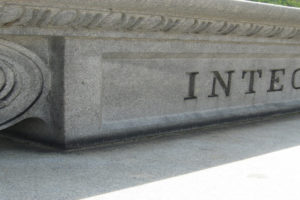Summer is in full swing, and for many of us, it is too much of a good thing. Record temperatures around the globe have made it difficult to enjoy the lazy days of summer. I hope that you have been able to take a bit of time off to relax, reflect, and spend time with family and friends.
Continuing my summer reading this weekend, I just finished The Science of Getting Rich. Written in 1910 by Wallace Wattles, the book outlines the behaviors necessary for one to get rich. More importantly, he lays out why we should be wealthy. Here is the first line of the book precisely as written: ‘WHATEVER MAY BE SAID IN PRAISE OF POVERTY; the fact remains that it is not possible to live a really complete and successful life unless one is rich.” What did I like about the book? I like that the author is willing to make a very provocative statement despite how many it might offend. I suspect many did not read beyond this first sentence. Regardless, it remains in print more than 100 years later. Many have said it changed their life, including Rhonda Byrne, author of The Secret (Wikipedia, 2019). So why is any of this relevant? Wallace asks us to change our thinking about money or about being rich. He is talking about living an abundant life, not just having tons of money in the bank. He encourages us to live the fullest life we can live, and that is going to require some funds. If you have ever dared to dream of traveling the world in a sailboat, Wattles would tell you to get busy. That it is your destiny, and you should take action to put your dream to reality.
The second point is that he is advocating, rather forcing, you to question the beliefs you have about money. Beliefs we have about money often come from our parents, our friends, our community, and the media. Some are productive, and unfortunately, many are not. What I believe Wallace Wattles asks us to do is to take a look at the beliefs we have that are driving our decisions about money and see if they suit us. If they support what we are up to. So, if it is our life long dream to travel the world in a sailboat, do the beliefs we have about money get us there.
Admit it. You have read an article or seen a program about someone who did something so daring that you were in awe and for a moment you thought about what it would be like to be that person. If you can’t think of one, let me offer two examples. In Free Solo (IMDB, 2019), Alex Honnold attempts to free climb the face of El Capitan. It has never been tried and probably should not be. If you have ever thought of doing something slightly outrageous, I highly recommend you watch this film. Whatever it was you were thinking of attempting will probably not be as audacious as this. Just for fun, here is another. Jamie and Behan Gifford leave well-paying jobs in to live aboard a sailboat for eight years with their three young children (Olson, 2016). Here is my favorite quote of the article, “…cruising requires that you learn to live without structure. And some people are really afraid of that.” (Olson, 2016)
My take away from Wattles is this. It is up to you. Whatever you desire. Whatever you have dreamed you can do or have will require that you take action in the direction of your dreams, and also that you change your beliefs to those that support the life you want. I think Einstein said it best when he said, “We cannot solve our problems with the same thinking we used when we created them.”
If you’d like a copy just click here and put RICH in the subject line.
The information provided is for guidance and informational purposes only. The articles are not the opinions of ProCore Advisors, LLC






